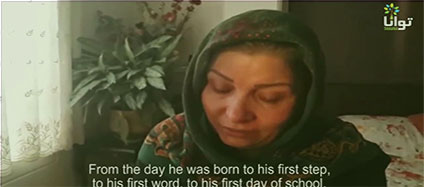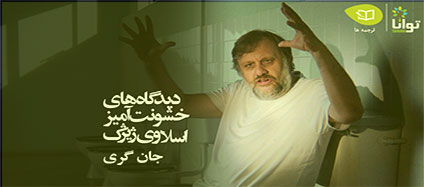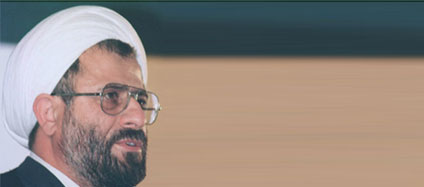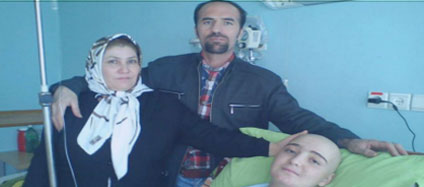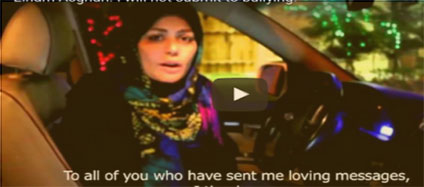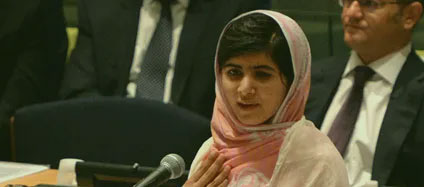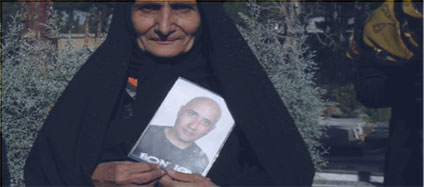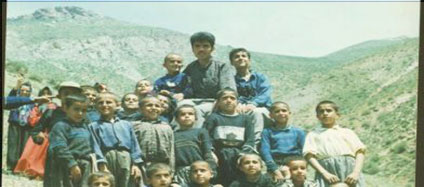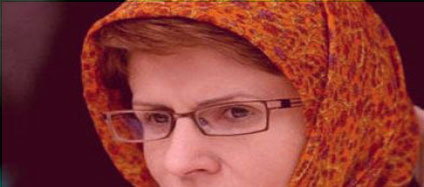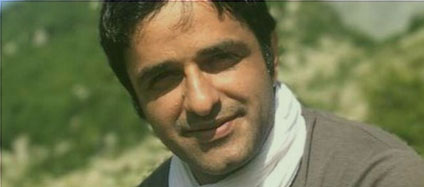In this exclusive Tavaana translation, renowned Iranian director Jafar Panahi sharply rebukes Iranian President Hassan Rouhani’s address to the opening ceremony of the 2014 Fajr Film Festival. In his letter, the award-winning filmmaker criticizes the President’s positions and revisits the allegation that “there are streaks of Ahmadinejad’s populism in Rouhani as well.” Mr. Panahi won the Camera d’Or at the 1995 Cannes Film Festival for The White Balloon, the Golden Lion at the 2000 Venice Film Festival for The Circle, and the Silver Bear at the 2006 Berlin Film Festival for Offside.
A recipient of the Sakharov Prize for Freedom of Thought from the European Parliament, Jafar Panahi was arrested twice during the Green Movement against the results of Iran’s disputed 2009 presidential election. On May 25, 2010, Panahi was freed on roughly $200,000 bail (2010 exchange rate). In December 2010, he was convicted of “assembly, collusion, and propaganda against the Islamic Republic” and sentenced to six years’ imprisonment (which could begin at any time) and a 20-year ban from filmmaking, screenwriting, and interviews with domestic or foreign press.
Jafar Panahi to Hassan Rouhani: “Do Not Try to Establish a New System of Censorship!”
When I read a section of the President of the Islamic Republic’s address to the Fajr Film Festival, it gave me hope and persuaded me to read the complete text because it contained this message: “Returning the estranged audience to movie theaters is the most crucial responsibility of our officials and filmmakers today. Cinema has no meaning without its audience, and festivals are only relevant when people are content with their country’s film industry and feel kinship with it.” I thought (or should I say I became hopeful) that finally, for the first time, one of the authorities had figured out the real reason behind the people’s lack of interest in cinema. Better yet, he has admitted the real problem and is now trying to remove the obstacle of censorship from our filmmakers’ path. That is the only identifiable solution, one the people and filmmakers have known and the authorities have denied for years.
Jafar Panahi
To my utmost regret, after reading the complete address, I was reminded of the words of [university professor and political analyst] Sadegh Zibakalam: “There are streaks of Ahmadinejad’s populism in Rouhani as well.” I believe that the latter is more dangerous, because while the former’s policies had merely become superficial slogans, this administration is consciously trying to establish a new system of censorship.
Rouhani says: “Filmmakers in my country tell me: Give us freedom and let us show the dark and bitter realities in our films that we were not allowed to show before! I tell them: Everyone knows about those realities more or less. Let us show some of the bright spots of reality alongside the darkness.” Mr. Rouhani knows perfectly well that over a hundred movies are made in Iran each year. Ninety-five percent of them are dedicated to those bright spots he mentions, while only five percent or less are trying not to lie to people and show things as they are. Of those five percent, ninety percent will never receive a permit for distribution.
Why is it that these instructions are only directed at the five percent, while the ninety-five percent are never asked to tell the truth alongside those aforementioned bright spots? Why is any artist forced to show the points that President Rouhani or some other official wants to see? If Mr. Rouhani really intends to bring audiences back to movie theaters, allow artists the freedom to decide what they will create. It is only then that they will find a fair indicator of the quality of their work, and that indicator is the success or failure of the film in reaching the audience. The people’s lack of interest in film started when their rulers ordered them what to watch and what not to watch.
The audience lost trust and interest in cinema when they felt their intelligence was being insulted. Rouhani asks filmmakers to promise to win their first award from the people of their own country! It seems like this pearl of wisdom was meant as humor, because he knows that the greatest reward for a director is for his film to be shown in his own country. When you do not allow a film to be shown in even one single theater in Iran, how can you ask people, critics, or people in the industry to pass judgment on it?
Furthermore, how can a filmmaker agree to such a pledge? Perhaps Mr. Rouhani doesn’t know, but if a filmmaker wants to show his work even to his peers in the Khaneh-ye Cinema (House of Cinema), he must receive permission from the Ministry of Culture and Islamic Guidance first. Those in the five percent usually do not receive such permission.
I do not know if Mr. Rouhani is aware of this, but at the same festival that he has addressed, the festival chairman will not allow the selection board to see a film titled Ashghalhaye Doost Dashtani (Loveable Garbage). It is a very Iranian film and more relatable in our own country than anywhere else because only an Iranian audience can truly recognize and identify the historical references and symbols of Amir Yousefi’s movie. Mr. Rouhani’s minister, however, has banned it. With such an example among countless others, what kind of promises and pledges does he expect from filmmakers?!
Time and time again, the authorities have sent such repetitive messages to filmmakers. These have not only not been helpful, but they have played a major role in driving audiences away from the movie theaters. It would be far better for Mr. Rouhani to promise that he will remain faithful to at least one percent of the promises he made during the elections and that, with prudence if not with hope, he will not try to establish a new system of censorship!

